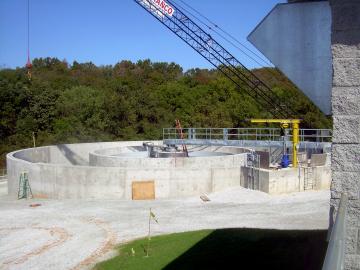
A state revolving fund (SRF) is a loan program that is capitalized by federal grants, state appropriations and dedicated revenues. Congress established the SRF program to provide states with a way to offer financial assistance to local communities. The program is a federal-state partnership, with the state being responsible for operating their program. This gives the states the flexibility to fund a range of projects that address their highest priority needs to protect public health, protect the environment and meet environmental standards benefiting hundreds of millions of people.
SRF programs function like environmental infrastructure banks, by providing low interest loans to eligible recipients for eligible projects. As loans are repaid, the loan principal and interest earnings are recycled back into the fund. The states use those funds to finance new loans to other recipients, allowing the funds to "revolve" at the state level. The funds can also be used to provide additional subsidization allocations, such as grants.
Missouri currently has two SRF programs - Clean Water State Revolving Fund and Drinking Water State Revolving Fund. These programs provide low-cost financing for a wide range of drinking water and wastewater infrastructure projects. Since their inception, the programs have provided more than $3.8 billion dollars in grants and loans to hundreds of communities, including over $175 million in grants. The programs have saved borrowers more than $1.4 billion in interest savings. Each program is briefly described below, with links to more information.

